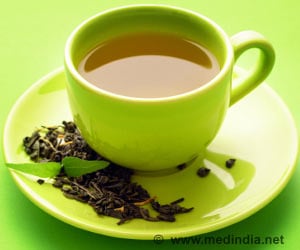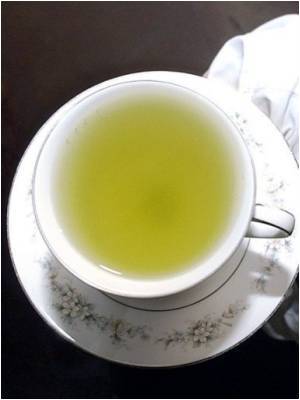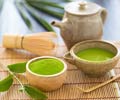When diluted with skim milk, epigallocatechin gallate (EGCG), an extractable polyphenol found in green tea could remain active and reduce colon cancer cell proliferation

The majority of extractable polyphenols in tea are flavan-3-ols, commonly referred to as catechins. EGCG is the major catechin found in tea.
Tea polyphenols have been shown to inhibit tumor formation, reduce cancer cell proliferation, increase normal cell death (apoptosis), and/or suppress the formation of new blood vessels feeding tumors (angiogenesis).
For several reasons, tea catechins have poor bioavailability and the goal of the current study was to encapsulate EGCG in casein (milk protein) molecular aggregates, known as micelles, to maintain and enhance catechin bioavailability.
In one experiment, human colorectal cancer cells (HT-29) were grown for 24 hours in the presence of EGCG in water or dispersed in milk.
The number of living cancer cells (cell viability) was measured, and it was shown that EGCG reduced cell viability in a dose-dependent fashion although at higher concentrations (0.15 mg/mL and above), the antiproliferative effect of EGCG in water was greater than in milk.
Source-ANI
 MEDINDIA
MEDINDIA



 Email
Email










